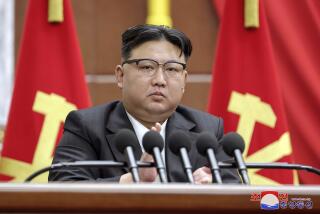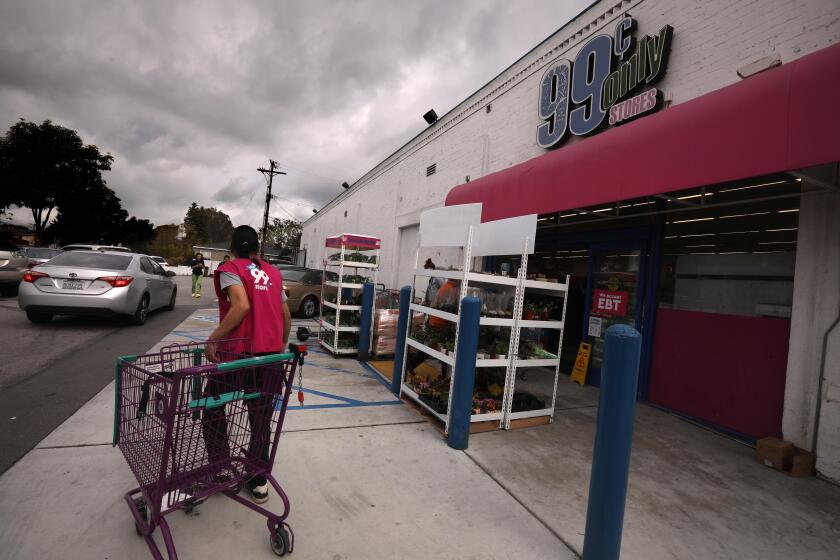Getting Kim Jong Un’s attention
Nothing about the international response to North Korea’s third nuclear test in February or subsequent provocations has been unreasonable. The crisis is entirely of Pyongyang’s making. But it is possible that the hard-line approach taken by Washington, Seoul and other capitals to the North Korean bluster, brinkmanship and bombast has been far less than optimal.
We need a firm policy. North Korea must pay a price for its irresponsible and dangerous behavior, and know that the world is united in standing against it. The resolve must begin with the U.S.-South Korean military alliance but extend to other nations, most notably China, North Korea’s only ally and main benefactor.
But there are a couple of problems. One is that China is uneasy about jeopardizing stability next to its borders and only goes along with sanctions reluctantly. Indeed, one possible explanation for North Korea’s behavior is that it is seeking to spook leaders in Beijing so severely that they will be even more averse to applying any further sanctions, perhaps after another North Korean nuclear test.
And the worse this crisis gets, the more it increases the odds of North Korea’s young leader, Kim Jong Un, further entrenching himself in hard-line positions from which it will be difficult to backtrack later. Among other things, it would raise the odds that he will seek to accelerate and expand nuclear weapons production activities.
We need a more creative policy should there be another crisis or a substantial worsening of this one (beyond a firing of a medium-range missile, for example). More sanctions might be needed. But new sanctions should sunset automatically, say after two years, unless Pyongyang tests another bomb, expands nuclear production or carries out another aggressive act leading to loss of life.
The key sanctions that could still be imposed would affect basic trade and aid in basic consumer goods, largely what China and North Korea exchange. Most sanctions to date are on banking, technology and the assets of certain individuals.
Temporary sanctions accomplish several goals. They constitute a firm response themselves. But because they do not last forever, they provide an incentive for better North Korean behavior. They also give a nod to China’s worry that strong-armed international action against the Kim regime, however justified, is risky. Chinese leaders may or may not be right, but there can be little doubt this is how they think.
At this point it is too late to turn existing, permanent U.N. sanctions into temporary ones without any North Korean concessions, as that would reward Pyongyang’s behavior. But we do need to look for ways to de-escalate this crisis. We also need to look for ways to more generally contain the downward trajectory of Pyongyang’s relationship with the outside world. As bad as things are now, they can get worse if the regime reactivates its plutonium-producing reactor or expands its suspected uranium enrichment, with the possibility that bombs could be sold abroad.
Although the U.S. position on key issues should stay firm, we should also be willing to talk with North Korea at any point. Beyond that, Washington needs to signal a willingness to engage in a much broader discussion leading to a road map for a comprehensive deal. Right now, Pyongyang shows little interest in internal reform. It needs to be encouraged to move in the direction that China, Vietnam and now Myanmar have taken: reform from within. And the U.S. should work closely with South Korea, Japan, China and Russia to develop a truly coordinated strategy to steer North Korea in this direction.
The regime need not commit up front to relinquishing every nuclear weapon for this kind of deal to begin. But if it is willing to stop producing nuclear arms, gradually scale back its military and begin to reform and ultimately dismantle its gulag system of labor camps and penal colonies, Washington should make it clear that U.S. and international help can extend to much broader economic and technical assistance as well as a comprehensive peace deal.
This may sound like strange talk in the middle of such an acute crisis. But it is partly because the U.S. has no clear strategy for navigating the relationship with North Korea that small crises can metastasize, and that Kim, listening to his hard-line generals, may decide that he has no option but to double down on the juche (self-reliance) Stalinist system that his grandfather and father have built, and on their extremely dangerous confrontational policies toward the West. We need to create a light at the end of the tunnel, even if the light will be very faint for some time to come.
Mike Mochizuki is associate dean of the Elliott School of International Affairs at George Washington University; Michael O’Hanlon is senior fellow at the Brookings Institution and is on Twitter at @MichaelEOHanlon. They are coauthors of “Crisis on the Korean Peninsula.”
More to Read
A cure for the common opinion
Get thought-provoking perspectives with our weekly newsletter.
You may occasionally receive promotional content from the Los Angeles Times.






